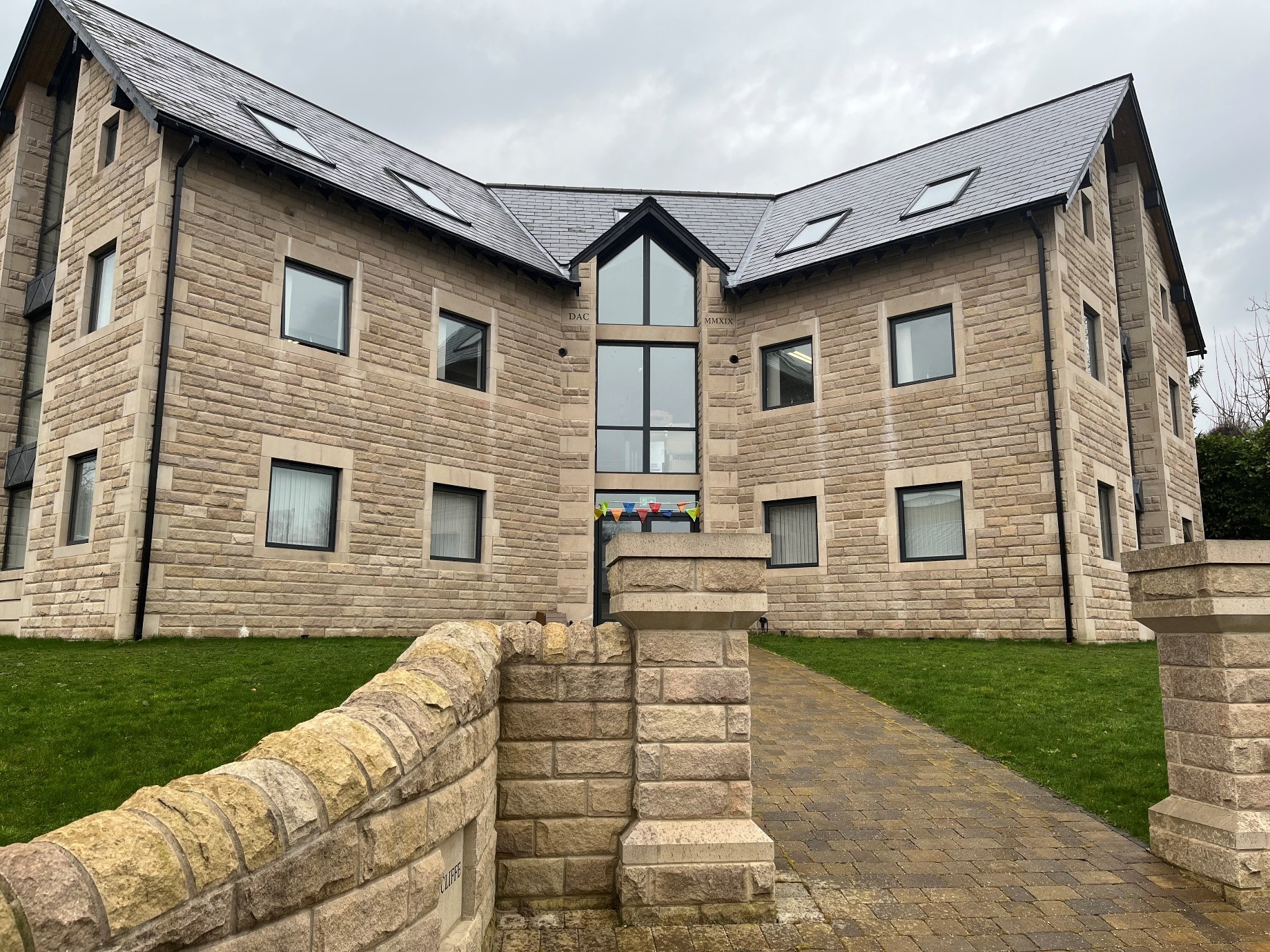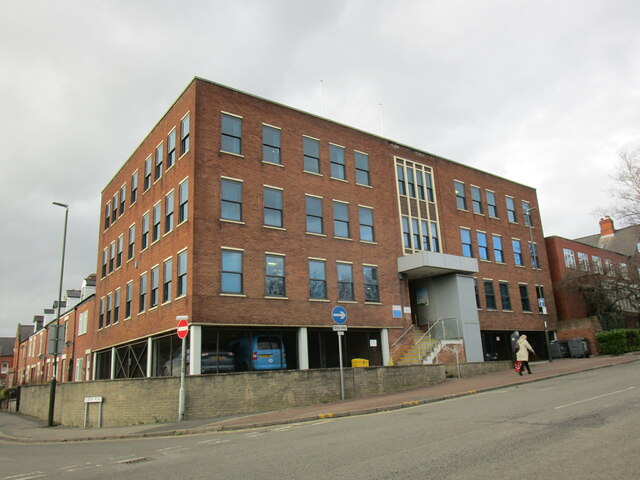About us
We are a specialist service offering individual and group psychotherapy, an intensive group programme, a training setting for NHS professionals to become qualified psychotherapists, and consultation and education to health and social care professionals in the region.
Important information
Address:
The Resource Centre
Florence Nightingale Community Hospital
London Road
Derby
DE1 2QY
Opening hours: 8.30am – 4.30pm
Telephone: 0300 0134796
Email: dhcft.psychotherapy-cbtteam@nhs.net
Main contact: Dr Nathan Babiker
What is psychodynamic psychotherapy?
Psychodynamic/psychoanalytic-based treatments are evidence-based forms of therapy which can effectively treat emotional problems and a wide range of mental health conditions such as depression, complex trauma, personality disorders, eating disorders and anxiety. This kind of therapy addresses underlying issues and causes, often from your past, which may be concerning you, or affecting your relationships with others. In your sessions you will be encouraged to talk freely and to look more deeply into your problems and worries. It differs from many other talking therapies in that it aims to help people make deep-seated change in personality and emotional development, alongside relieving troubling symptoms. It can help you discuss feelings you have about yourself and other people, particularly family and those close to you.
- Adapted from www.bpc.org.uk/information-support/what-is-therapy/
What we offer
We offer three distinct treatment pathways:
This is with the same therapist and at the same time of the same day each week. The aim is to understand your problems at a deeper level. Even short-term psychodynamic psychotherapy requires commitment of between 6-12 months or 25-40 sessions. Longer-term therapy usually lasts between 12-24 months or 40-80 sessions. Sessions last 50 minutes.
People with mental health difficulties can often feel isolated, stigmatised and misunderstood, which can contribute to their distress. Groups are a powerful way for people to connect with one another and explore themes of similarity and difference together, facilitated by an experienced professional.
Weekly groups take place at the same time of the same day each week and last from 12-24 months. They can be facilitated by one or two staff members and may have between 8-10 participants. Group sessions last 75-90 minutes. There are also specific evidence-based interventions such as Mentalization-Based Therapy (MBT) which are typically provided in a group format.
The Therapeutic Community (TC) is an exciting and innovative therapy which is new to Derby, although it has it roots in the intensive group programme that has been running here since 1994. It provides an opportunity to increase understanding of your psychological, emotional, and social functioning, with the aim of supporting personal development. This is achieved through groupwork and by participating in the community, gradually taking on tasks and responsibilities as your own journey unfolds. Tasks might include arranging the chairs for the meeting or taking minutes.
The TC is very different from most therapies in the NHS, and different from the intensive group programme as it is built on a strong ethos of equality and working together. There is less of a hierarchy and less difference in role between staff and patients. Staff are members of the TC too, and work as part of the community to help members overcome matters that are troubling them. However, they often take more of a back seat and facilitate members helping each other.
The TC runs one day a week from 10.30-3.00pm on a Wednesday, although we hope to expand to 2 days a week in the future. The day is a mix of community meetings and a psychodynamic psychotherapy group.
Psychodynamic Psychotherapy Group
This is a traditional psychotherapy group, combining psychoanalytic insights (e.g. noticing things that are happening outside of the group’s awareness, or things repeating from past experiences) with an understanding of social and interpersonal functioning.
Community Group
This is a group for all members of the community, including all staff members who are involved in any way. We encourage members to not only value their own therapy journey but to also take an interest and assist other members. It is in this meeting that we discuss absences and assist any member who is struggling to attend or share in community tasks. We discuss any boundary issues and any other agenda items any member of the community may have.
For more information on TCs please follow this link: https://therapeuticcommunities.org/?page_id=14419
Current staff
All colleagues on the team are qualified mental health professionals from a wide variety of backgrounds such as nursing, social work, occupational therapy and clinical psychology.
Our staff specialise in psychodynamic psychotherapy and may have other specialist areas of interest, such as working with adolescents and young adults, trauma-focused therapy, or group work.
We are an educational setting with a responsibility to train psychodynamic, psychoanalytic and group psychotherapists. Some of our staff are undertaking specialist qualifying training whilst working in the service full time. We also offer placements to honorary or visiting therapists from a range of professional backgrounds.
You may be offered to see one of our visiting therapists or trainees. All these staff are closely supervised by an experienced psychotherapist.
Our current staff are:
- Dr Nathan Babiker, Psychodynamic Psychotherapist and Consultant Clinical Psychologist (Service Lead)
- Catherine Draper, Psychodynamic Psychotherapist and Principal Psychotherapist for North Derbyshire
- John Fletcher, Psychoanalytic Psychotherapist
- Toni Fox, Psychodynamic Psychotherapist
- Lauren Fuzi, Psychological Therapist
- Sarah Jones, Psychological Therapist
- Chloe Taylor, Assistant Psychologist
- Emily Thomas, Psychoanalytic Psychotherapist
- Steve Wheeler, Psychoanalytic Psychotherapist
- Grace Whiting, Psychological Therapist
Accessing the service
People referred to this service must be currently under secondary mental health services, and usually have longstanding mental health problems such as complex trauma or personality disorder. They may have tried other therapies before undertaking psychodynamic psychotherapy.
A professional worker you have regular contact with, such as a care co-ordinator, psychologist or psychiatrist, should speak to you about the referral first and involve you in the decision. If you agree to be referred, this person will then contact us. We do not currently accept self-referrals.
In some cases, the referrer may wish to book a time to make an enquiry, during which they can discuss the reason for referral and gain some advice on whether psychodynamic psychotherapy would be appropriate.
Once a referral has been made, a member of the team will review this and may contact the referrer for further discussion. When there is enough information to decide that psychotherapy might help, we will send a letter to you with information to complete and send back. We will include a stamped envelope.
Location
The service offers appointments in Derby City, Bakewell and Chesterfield.
Endcliffe Mount, Deepdale Business Centre in Bakewell
Address:
Endcliffe Mount,
Deepdale Business Park,
Bakewell,
Derbyshire DE45 1GT

The Resource Centre in Derby
Address:
The Resource Centre
Florence Nightingale Community Hospital
London Road
Derby
DE1 2QY
Bayheath House in Chesterfield
Address:
Bayheath House,
Rose Hill West,
Chesterfield, S40 1JF

What to expect
Psychodynamic psychotherapy occurs in a safe setting and relies on very clear boundaries of confidentiality. You will first be offered an assessment with one of our team to see whether psychodynamic psychotherapy would be suitable. This assessment may take place over several sessions. If psychodynamic psychotherapy is not recommended, or a different approach would be more suitable, they will discuss this with you and write to you and your referrer to confirm this.
The psychotherapist will be interested in what is in your mind and will encourage you to talk freely. They may speak less than other therapists, and could seem more neutral and less openly reassuring, but they will be attuned to your emotional responses and empathetic. They will also be interested in your feelings about them, and what these might reflect about other relationships in your life, past and present.
Many of the people who come to our service have had upsetting or traumatic experiences, particularly in childhood. As psychodynamic psychotherapy can involve looking at the past, it may put you in contact with these experiences and the challenging feelings they bring. Your therapist will ensure that you understand this and discuss whether you feel able to undertake this aspect of the work.
Psychodynamic psychotherapy does not involve the therapist giving advice. Instead, you are supported to come to your own conclusions about your difficulties over the course of the therapy. The therapist may share ideas or an interpretation of the issues you discuss, but they will not give specific directions, techniques or coping strategies to practise. Therapies like cognitive behaviour therapy (CBT) provide these kinds of techniques and might be more suitable for some people.
How do I make comments or a complaint?
If you are currently receiving treatment, you can speak with your psychotherapist. If you are unable to do so for any reason, you can contact the service lead Dr Nathan Babiker using the number above.
If you have a complaint and wish to speak to someone outside the service, you can contact the Trust Complaints Manager on 01332 623700 (ext 33469) or email dhcft.patientexperience@nhs.net.
Further reading
British Psychoanalytic Council
https://www.bpc.org.uk/information-support/
UK Council for Psychotherapy
https://www.psychotherapy.org.uk/psychotherapy-training/psychotherapy-approaches/#psychoanalysis-and-jungian-analysis
Royal College of Psychiatry
https://www.rcpsych.ac.uk/mental-health/treatments-and-wellbeing/psychotherapies

